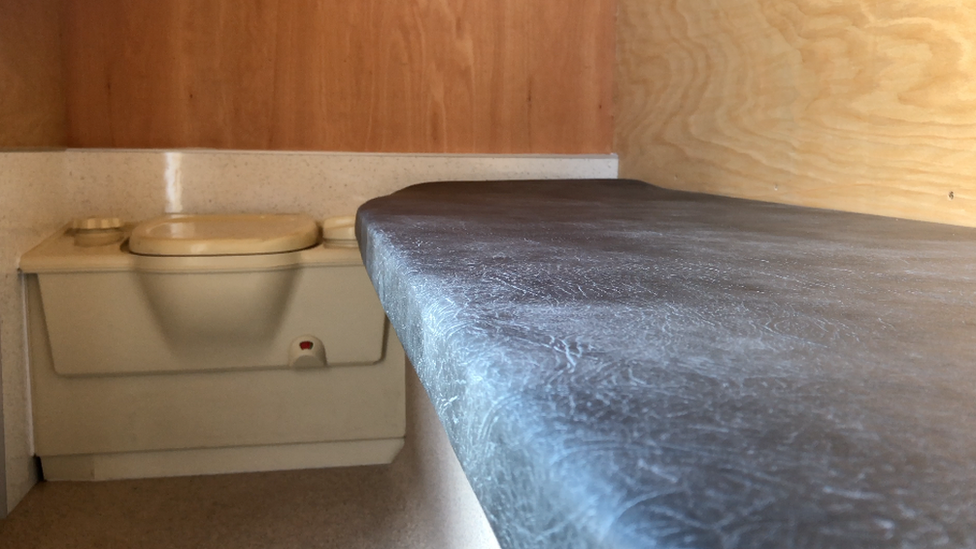Street homelessness at 'crisis point', says Shelter Cymru
- Published
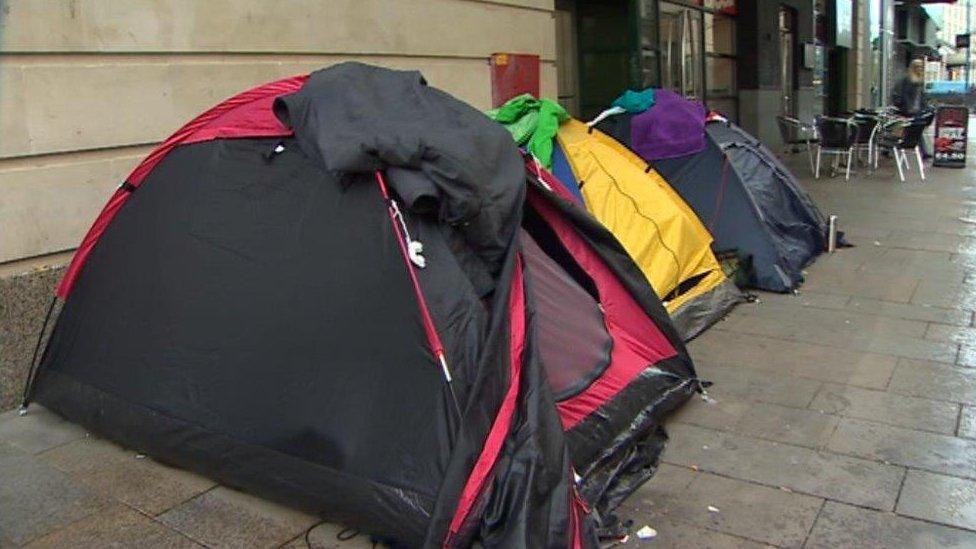
Rows of tents have become a familiar site on city streets
Street homelessness in Wales is at "crisis point", according to a charity.
While the exact number of people sleeping rough is unknown, Shelter Cymru, said all the main organisations had reported a rise.
The charity said more needed to be done to get people off the streets and into homes of their own.
The Welsh Government said homelessness was a priority and they were investing £30m to support people off the streets.
Rows of tents in cities have become a symbol of the UK's street homelessness problem.
Every news story is met with calls for "more to be done" - but in practice, what can be done?
'Create spaces for safe drug use'

Richard Edwards, chief executive of the Cardiff-based Huggard charity, said creating spaces where people can take drugs safely and access support when they need it would help reduce homelessness.
He has seen a huge increase in substance misuse in the homeless community, and heroin and Spice are the most-used drugs.
In so-called enhanced harm reduction centres, people could inject drugs safely with medical supervision, and this would keep more people off the streets, he said.
"If someone has a heroin addiction, they may need to inject seven or eight times a day. That puts their health at serious risk and they run the risk of overdose... but also the only place they've got to inject is the streets because they can't inject in services - which forces them out on to the streets.
"We are seeing people dying on the streets as a result of this. This has got to stop. This is not acceptable in a civilised society."
'Living in a house feels like the lap of luxury'
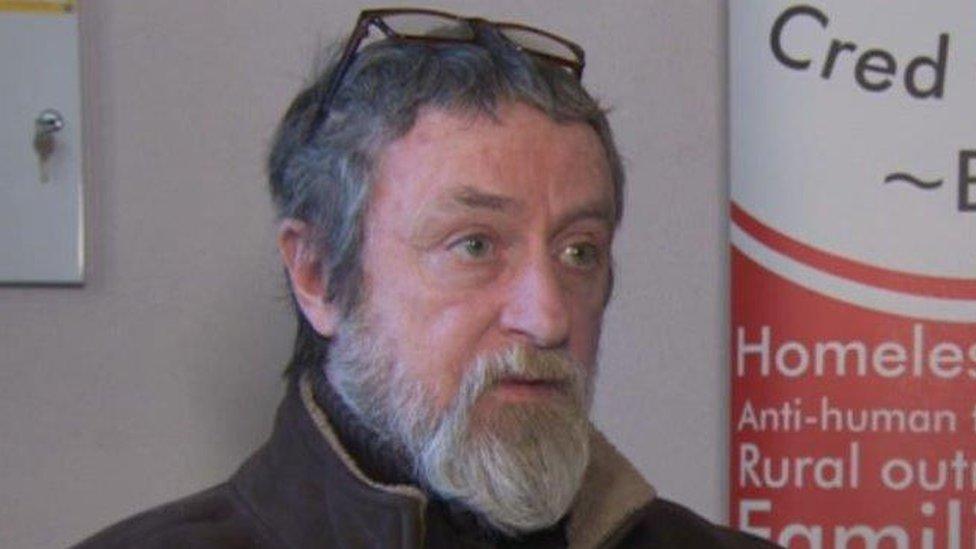
Chris from Taffs Well had casual work while homeless
Chris, from Taffs Well, lived in a people carrier for six and a half years before benefitting from a project called Housing First.
It gives people a home and then supports them with whatever problems they have.
The typical alternative available to people who are street homeless is to "work their way up" support services, through hostels and supported accommodation.
Chris had been a teacher for 25 years, before alcohol dependency led to a downward spiral and eventual imprisonment. After leaving prison he lived in his car, picking up casual work as a roadie.
"Casual work in the gig economy means that you can never depend on having a whole week of work so I never seemed to have enough to be able to support a tenancy."
He became malnourished and his health suffered, but his life changed dramatically when he was given the keys to his own home through a Salvation Army Housing First project.
"Slippers, hot water, a bed - three things you dream of when you're living outdoors... It makes me feel like I'm living in the lap of luxury rather than what most people take for granted."
The Welsh Government has already funded six Housing First projects, but Jennie Bibbings, campaigns manager for Shelter Cymru, said more were needed. She called for a wide variety of houses to be built and more empty houses to be brought into use.
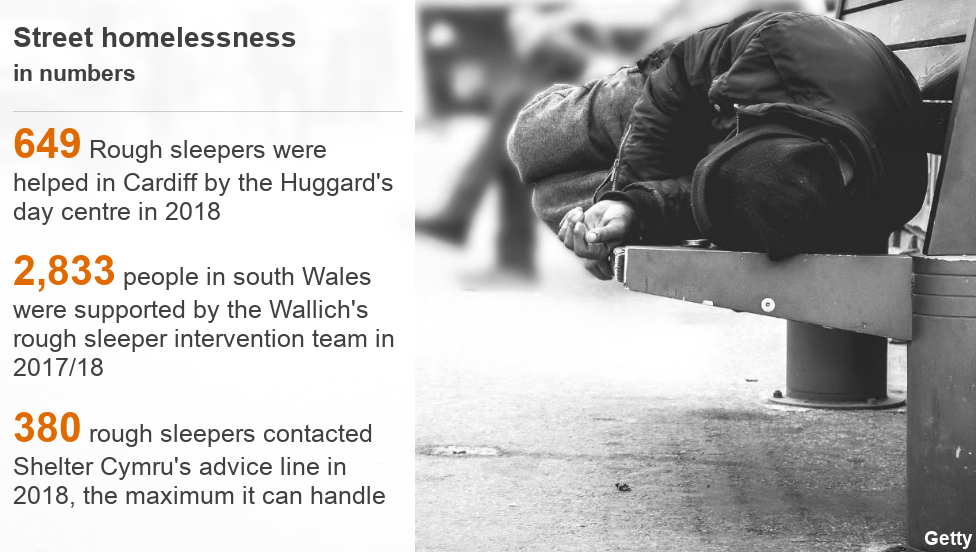
'More collaboration and round-the-clock support'
Lindsay Cordery-Bruce, chief executive of The Wallich, said more collaboration between service providers was key.
"We also need to have a pragmatic approach and question why people would sooner sleep in a tent than use our services.
"There is wonderful work being done, but we need to [think] differently about what we do.
"We need to give people every opportunity to get help - and that might mean running spice clinics at 2am."
She said third-sector organisations often had to battle for funding from councils and government, but they needed to work together.
She called for a ministerial strategy across health, housing and criminal justice, with funding streams to match.
'It's more complex than knocking up houses'
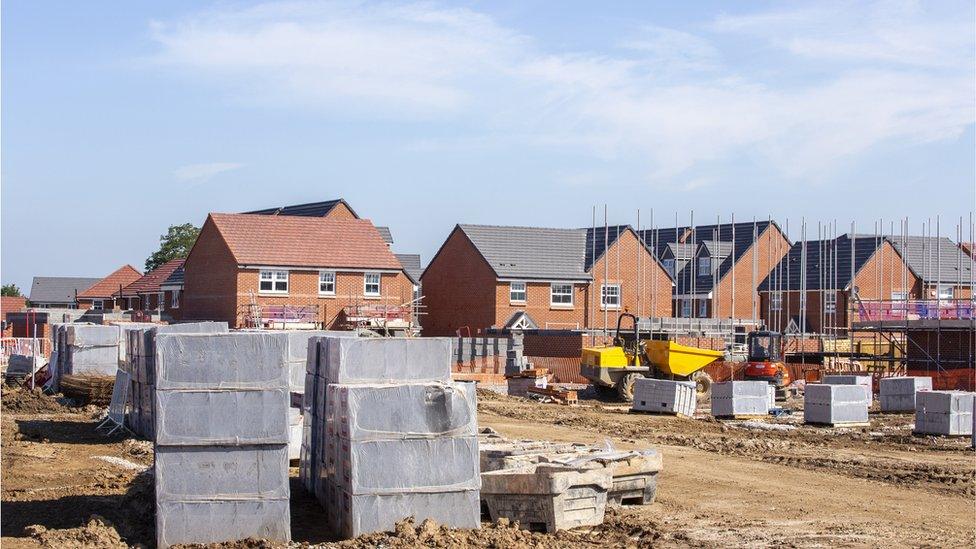
Minister for Housing and Local Government Julie James AM said homelessness was a priority and they were giving a lot of funding to councils and third-sector organisations to help people.
She said it was vital to ensure the accommodation was in the right places and met people's needs.
"It's more complex than knocking up houses in any old part of Wales," she said.
Ms James said she hoped there would be Housing First projects in most places with homeless problems by next winter.
- Published19 January 2019
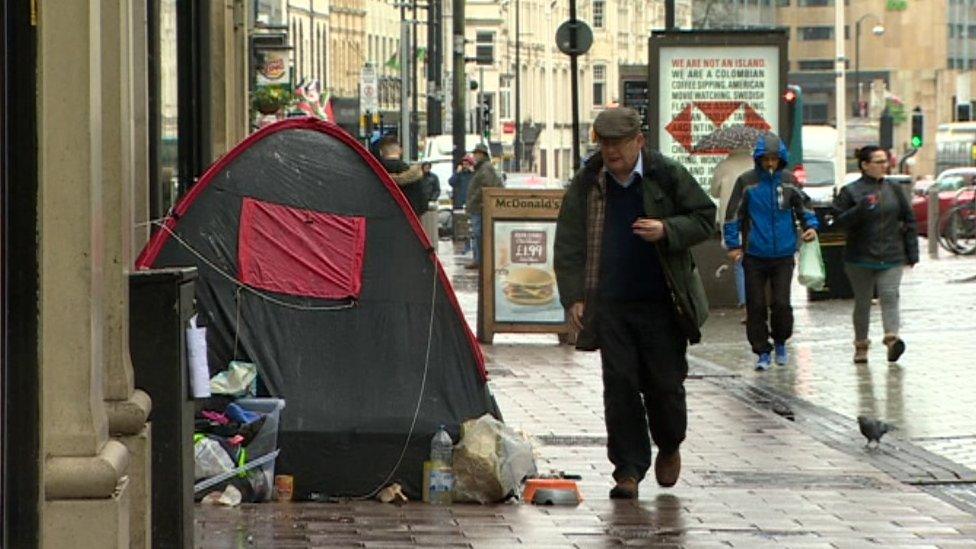
- Published21 January 2019
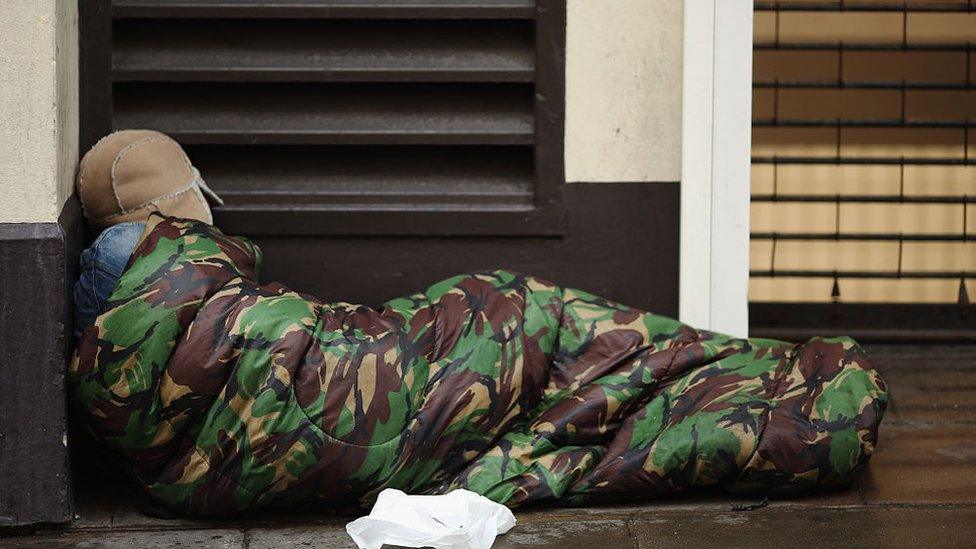
- Published19 December 2018
